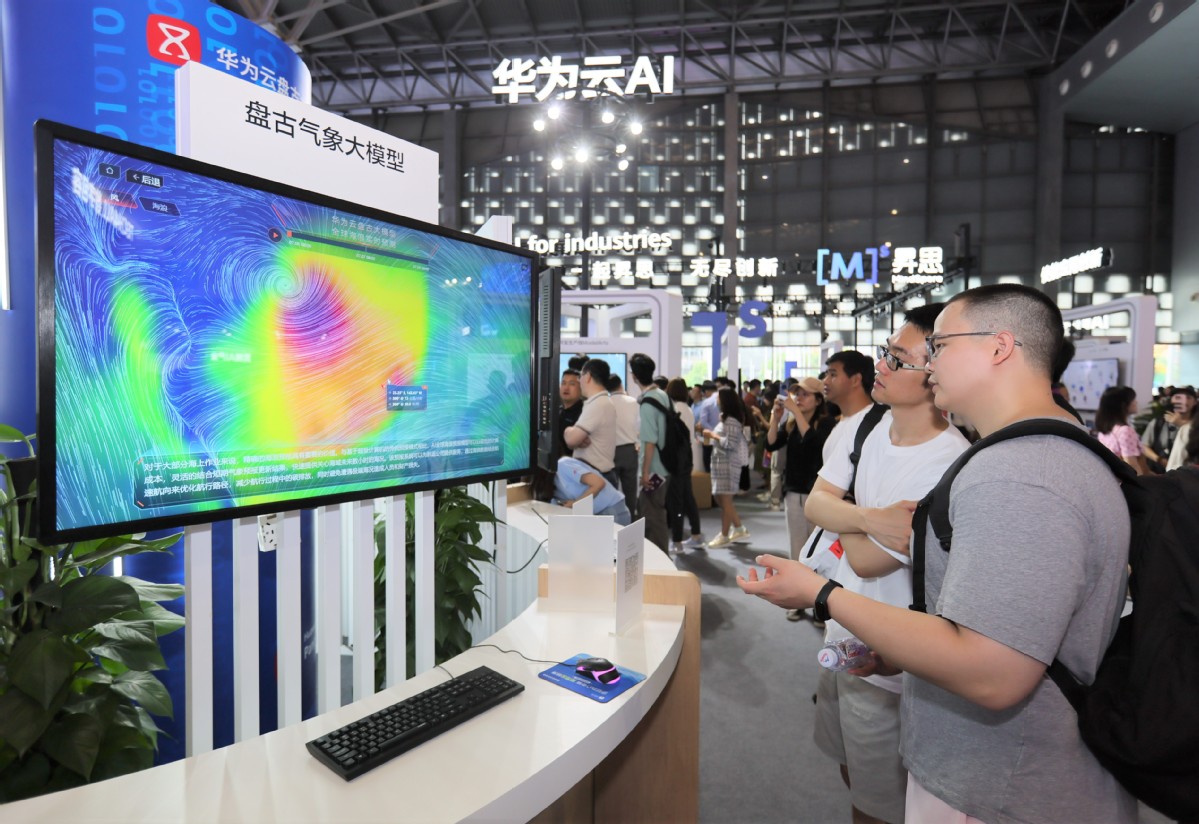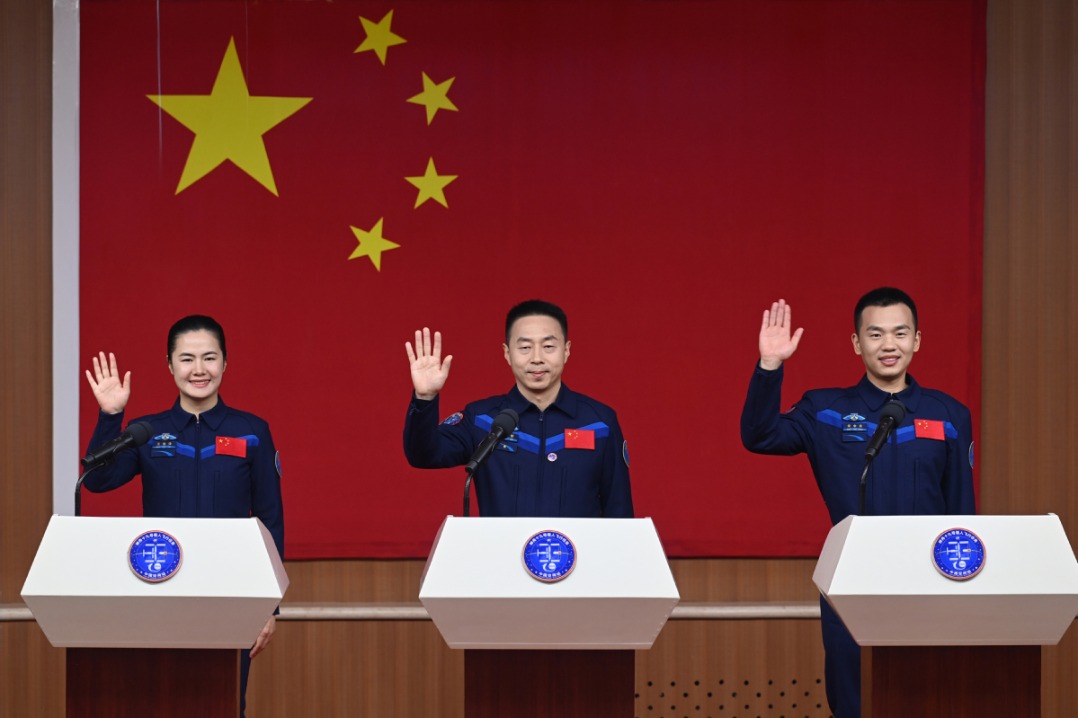Nation sets impressive pace on AI applications


Great progress
Chinese AI pioneer SenseTime has made great progress in promoting the industrial application of LLMs in finance, healthcare, e-commerce and intelligent terminals. The company, which is based in Shanghai, launched its self-developed LLM SenseNova in April, which covers key capabilities such as computer vision, natural language processing and AI-generated content.
Xu Li, chairman and CEO of SenseTime, said the breakthrough in LLMs has sparked a new technological revolution in AI, leading to significant growth in industry demand and the emergence of new application scenarios and formats.
For example, in the financial sector, SenseTime is collaborating with banks, insurance companies and brokers to use digital humans for intelligent customer service and marketing. Powered by its LLM capabilities, the company offers investment research analysis and report-writing services, which will help banks and other financial institutions reduce costs and increase efficiency.
SenseTime has also developed a Chinese-language medical LLM built on a vast amount of medical knowledge and clinical data. This model can provide multi-round conversation capabilities for health consultation and guidance services, and help doctors improve diagnosis and treatment efficiency.
Furthermore, Chinese e-commerce giant JD unveiled its large language model ChatRhino in July, which could be used in a wide range of fields, including retail, logistics, finance, and health, as the company aims to bolster digital transformation and upgrade various industries by using AI.
The model will be deployed within JD's core business areas in the second half of this year, the company said.
Xu Ran, CEO of JD, said the company has accumulated huge amounts of data and knowledge from extensive industrial scenarios, and it will strengthen cooperation with industry partners to promote technological innovation.
A report compiled by the Institute of Scientific and Technical Information of China said the nation has made remarkable progress in AI- ranking second in the Artificial Intelligence Innovation Index for the third consecutive year, trailing only the US.
Zhao Zhiyun, director-general of the institute, said China has seen its rankings in networks, talent, education, system innovation and patents rise, but there is still plenty of room for improvement in innovative scale and quality.
Global market research company International Data Corp said China's spending on AI will likely reach $14.75 billion this year, accounting for about one-tenth of the global market. The scale of the nation's AI market is expected to reach $26.44 billion in 2026, with a compound annual growth rate of more than 20 percent from 2021 to 2026.
Local governments have launched policies to better promote the innovation and development of AI. For instance, the core industry scale of AI in Beijing is expected to reach 300 billion yuan ($41.1 billion) by 2025, according to a plan released in the Chinese capital in May.
In Guangdong province, the authorities in Shenzhen have proposed using 100 billion yuan of funding for AI, strengthening the supply of intelligent computing power clusters, enhancing the innovation ability of key core technologies and products, and industrial agglomeration (firms in the same industry being located in the same geographic area).
In Shanghai, several policies have been announced to encourage the investment of private capital in new infrastructure and to support private enterprises to take part in constructing AI infrastructure such as data and computing power.
Although AI brings new development opportunities, there are still challenges to face. As data security becomes a rising priority, more efforts are needed to ensure the technology is used safely and responsibly.
A report released by global consultancy Boston Consulting Group, or BCG, said that to promote the large-scale commercial use of generative AI, more needs to be done to improve computing capacity, optimize the training of LLMs, and safeguard data security.
Sun Wei, partner at BCG and core leader of the company's financial institutions practice, said, "It is important for banks to establish a responsible AI system and ensure the fairness, accountability, transparency, privacy and security in the application of generative AI."
























